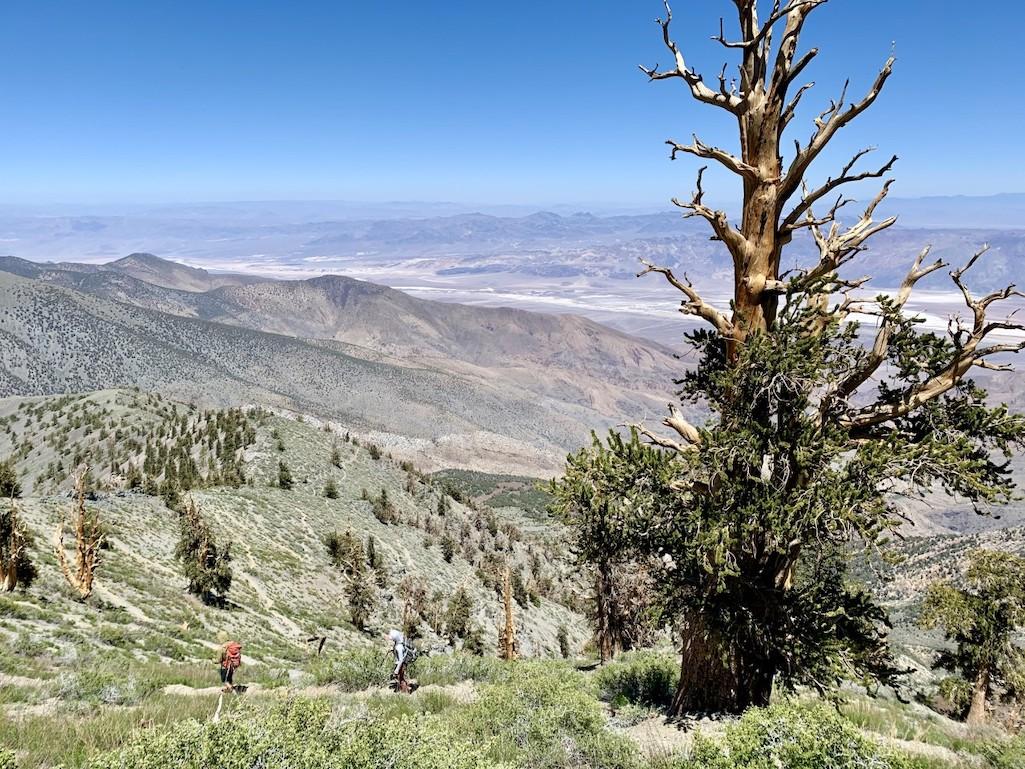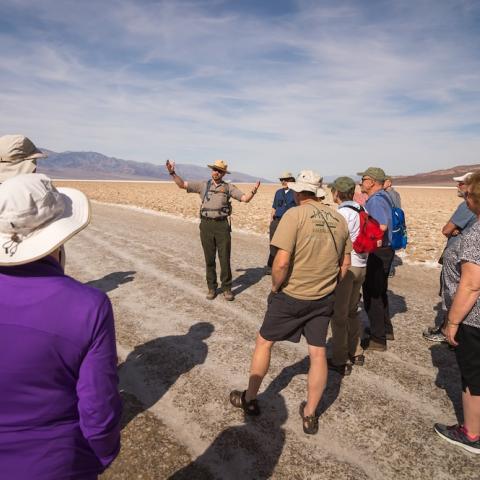
Warmer winters the past decade are killing Great Basin bristlecone pines in Death Valley/NPS, Jennette Jurado
Many visitors to Death Valley National Park think it's pretty cool to take a selfie in front of the digital thermometer in front of the Furnace Creek Visitor Center. And this summer, with a string of 17 consecutive 120+° Fahrenheit days, there have been plenty of opportunities.
Sadly, though, the hot weather is killing the park's bristlecone pines.
This July 14-30 at Furnace Creek tied the third longest heat wave in the park’s history, with daily highs of 120 degrees Fahrenheit (48.9 Celsius) or more. During the 17-day period, daytime highs were 121 to 128 degrees. Overnight low temperatures were 90 to 102 degrees. This is the longest streak of temperatures in 94 years, a park release said.
The month of July is often the park’s hottest month of the year. Preliminary data suggests that this July will be the second hottest July on record, with an average temperature of 107.6 degrees, second only to 108.1 in 2018.
While data is interesting to read, it also has a message. In Death Valley, seven of the 10 hottest summers on record have come in the last 10 years. Many of the plants and animals that live in Death Valley are living at the edge of survival. Even a slight increase in temperature or change in weather patterns could have negative impacts on plant and animal populations.
There may be no better example of these impacts than the famed Great Basin bristlecone pines. Bristlecones in the park are at the extreme southwestern edge of their range, making them uniquely vulnerable to climate change. Bristlecones were previously thought to be highly resistant to bark beetle attacks, but reduced annual precipitation, prolonged drought, and warmer winter temperatures have made these trees increasingly vulnerable, resulting in a 70 percent mortality rate on the eastern slopes of Telescope Peak over the past decade.




 Support Essential Coverage of Essential Places
Support Essential Coverage of Essential Places






